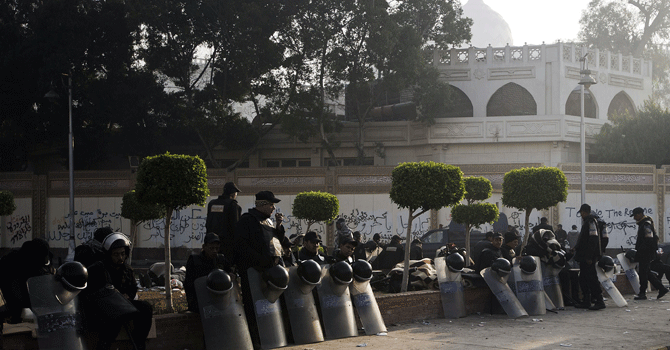Blogger files claim to have name removed from government blacklist
CAIRO: Hala Helmy Botros, a Coptic Egyptian activist and human rights advocate, says the government wants her to close down her blog Aqbat Bela Hodood (Copts Without Borders), in which she documents alleged incidents of persecution of the Coptic Christian minority.She was ordered to stop writing on the subject for other websites, according to a report issued by Reporters Without Borders.Her story points to the government s attempt to quash any online discussion of possible sectarian strife in Egypt.
Botros has filed a case against the government will to remove her name from a blacklist – something she discovered by coincidence when she was at the Mugamma. The hearing is on Dec. 24.
“The government does a lot to try and prevent bloggers from getting the message out. I have a blog and I m a human rights activist. I focus on sectarian issues. They [the authorities] didn’t like what I was doing, Botros told The Daily Star Egypt.
Gamal Eid, executive director of the Arabic Network for Human Rights Information, believes that Botros s case proves the regime s plans to curb freedom of expression on the Internet.
“Hala’s case is full of violations, Eid told The Daily Star Egypt, “they blocked her site, closed the cyber café she frequented and prevented her from traveling abroad. And all this is because of what she wrote on her blog.
Botros, 42, also known as Hala El-Masry, says that her run-in with the authorities began in April 2006. “I received a call at 1 am that a makeshift church built by the Coptic community in Qena was being pulled down. I went and found the security services watching the carnage as they sipped tea on a bridge nearby. The security services were always lax in cases of violence against Copts. In this incident I got angry and confronted them, she said.
Churches cannot be built or renovated without permission from the relevant government authorities. Due to the fact that planning permissions are often not forthcoming, many Copts build makeshift houses of worship, which are illegal.
After confronting the confrontation, Botros was taken to the Qena police station.
She said: “They asked who was paying me, and which foreigners I meet? They called me a spy. Later, my kids were harassed at school by other kids, who would tell them ‘give us some of that American money.’
Eventually Botros was released, thanks to lobbying by the Coptic community.
But her story doesn’t end there.
Botros continues: “I was stopped at the airport on my way to attend a Christian conference in New Jersey; I was held for two hours and not allowed to board the flight. Later, the police came to my house, took away my husband and made him sign a statement pledging to take me to a state security interrogation.
According to Eid, the government punished Botros for exercising her basic right of freedom of expression. “They sullied her reputation and defame her, he said.
He added that the government should prevent discrimination against Copts, rather than try to gag those speaking out against it.
Botros does not regret what she did. “I was defending a cause, the rights of Copts in Egypt and the right to build houses of worship, she told The Daily Star Egypt.
She does admit that the Coptic community will often build makeshift churches without official approval. “Yes I admit we cheat when building churches. We raise a curtain and behind it we build a house of worship. [But] we need churches and a unified law concerning houses of worship, she said.
Since then Botros’s blog has been shut down. Authorities even confiscated all the computers at a cyber café she had frequented, she said, and the result was that other cyber cafés in the area feared letting her use their facilities.
Yet Botros does not believe that the government will be able to rein in the blogging scene. They can t control the bloggers. All they will do is suppress it here but they cannot suppress it globally.
She adds, “Bloggers have been more active than the independent press in affecting change in Egyptian society. The online community is banding together regardless of what they believe, whether pro-Islamic or anti-Copt.
Botros stressed that the Coptic community considers itself aligned with the future of the country and willing to make any sacrifices necessary for the country. “We are not traitors; we will die for this land, she said.
Botros added that the only Egyptian soldier to die in the 1990 Gulf war was a Coptic Christian who was training to be a priest.

